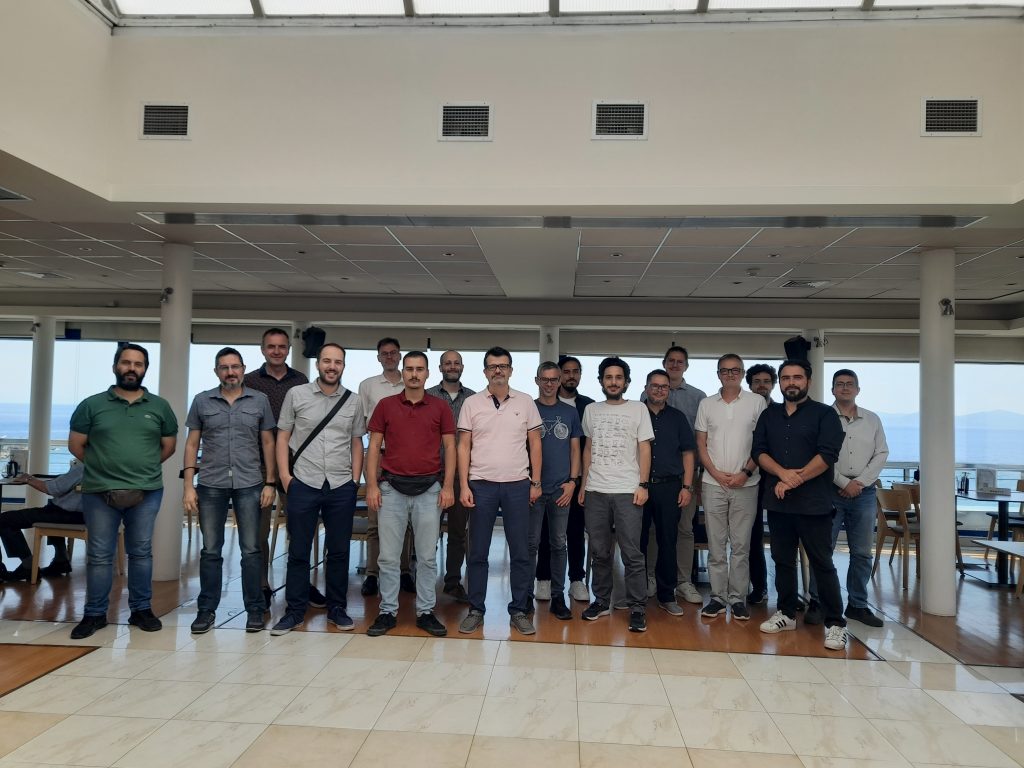The fourth plenary meeting of NEoteRIC project took place in Athens last 6th of July. It was the first physical meeting since the kick-off in February 2020, just before COVID-19 effects. On top of the fruitful technical discussions undertaken during the meeting, it was a very good opportunity to tight the bounds and strengthen the collaboration among the partners of the consortium.
Despite technical challenges, the work progress is satisfactory. First programmable chips are being currently characterised validating the design and the first fully packaged prototypes will be available for extensive experimentation in a few months from now.
In the meanwhile, the utilisation of a FPPA Core simulator provided by UPV allowed to implement and train neuromorphic paradigms and AI techniques in virtual programmable photonic chips that meet the number of nodes and the parameter values obtained by the characterisation of the chips that will be used in the final system setup.
Although we initially envisaged to utilize a set of artificial spherical beads in order to emulate “real-life” conditions during STEM cytometry, after using this kind of material for the last few months we realized that we need to use more complex shapes to fully test the system capability. For that reason, we intend to move to Fungus Cells, which seem more appropriate to emulate cancer cells. This kind of samples exhibits a more diverse configuration in size and morphology avoiding at the same time the ethical and personal data protection issues that would bring the use of biological cells (e.g., blood) or Cell lines.
The hard work performed so far has been reflected in the publication of 16 papers (some of them invited) in high impact scientific Journals (JSTQE, JLT, Optics Express…) including two papers in Nature Communications Engineering and Nature Photonics. We have also disseminated results in 14 selected workshops and congresses, as the European Conference on Optical Communications, the Optical Fiber Communication Conference and Exhibition and the SPIE Photonics West.
We are looking forward to meet again in Jerusalem by the end of this year to follow up the progress of the project. We expect we will have obtained some thrilling results from real, packaged chips by then.

